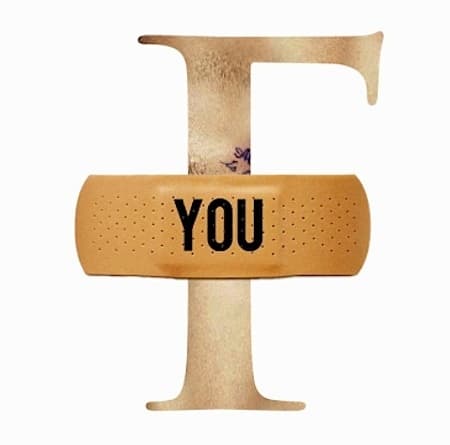What would it look like if you forgave yourself today? I’m skimming over an email sent my way about a new book called F-You: The Forgiveness Project: Memoirs of Violence and Compassion. This question jumps off my screen and sticks to me and I think, “Wow. What would it really be like?”
Taken from an ongoing project (of the same name) that began in 2010, this brazen new book explores what it might be like for us to forgive ourselves, and forgive those who have hurt us. I caught up with Tara Muldoon, who authoured this collection of stories from victims, survivors, and perpetrators, to ask some important questions.
Shedoesthecity: How do you define forgiveness?
Tara Muldoon: I personally define forgiveness as the place where you can see the issue from all angles and find peace within it. I know I’ve reached a place of forgiveness when I can find the lesson and strength, regardless of how minor it may seem. I also know forgiveness looks like many different things to many different people, and that’s the best part about this book: how the journey of forgiveness is its own story.
SDTC: Do you define violence? Is it strictly physical? Is it emotional, mental, and spiritual?
TM: Violence is all of the above, however in this book we captured emotional and physical. By no means does that undermine any other forms of feeling victimized.
SDTC: How did composing this book aid you in your personal quest for forgiveness of yourself and others?
TM: I needed this book to come out. It was in my soul for a very long time. Although the book is a collective of stories from youth and young adults, I felt like my story was intertwined with theirs. The whole book came about because of the F-You speaker series, which is basically speakers discussing a time they had to forgive themselves or another [person]. Because so many people related to that, the book was the next step.
The project is very close to my heart, because I feel it was the one tool that allowed me to overcome being a survivor of sexual trauma. I realized my story represented many people’s stories as well.
SDTC: What do you hope readers will gain (or let go of) in reading this book?
TM: I really encourage readers to ask the question, “What would it look like if I were to forgive today?”—and that could represent any issue, big or small. I also hope it sparks conversations among young adults about resolving conflict.
SDTC: Do we hear from perpetrators in the book? Why or why not?
TM: Absolutely, and it’s so powerful. I highly encourage readers to check out the first piece in the book, which is called “Words.” The writer speaks about the guilt he carried around, and it’s very eye opening into the mind of someone weighed down with knowing they’ve hurt another person.
SDTC: What thoughts would you like to leave readers with?
TM: There was a time when I didn’t believe shame would disappear and peace would be real, but I’ve found an unshakeable solace in changing my mind frame from being a victim to a survivor. I hope that gives another person hope.
SDTC: Do you have any tips forpracticing forgiveness of self and others?
TM:
- Do not minimize the offence. Forgiveness is not belittling your own thoughts. It’s okay to be hurt.
- Put yourself in the offender’s shoes. This can assist with clarity.
- Forgiveness is a decision that you have to make every day.
- Write down your decision or tell someone. Don’t carry this alone.
- Follow through; it’s a choice you have made for you.
- Know you won’t always feel good about the decision.
- Don’t feel obligated to make amends with the perpetrator. Forgiveness is for you, not to recreate a relationship.
- Don’t use the situation as leverage. Do not hold being wronged over anyone’s head.
- Forgive yourself. Every day.
- Do not undermine the power of apologizing. Even if the other person is not receptive, you’ve done what you can.
- I believe there is nothing too heinous to forgive—only that an offence is too heinous to forgive right away.
Check out the F-You Project’s website and order your own copy of this phenomenal book.
Follow @primafeminista on Twitter.



 Follow Us On Instagram
Follow Us On Instagram
